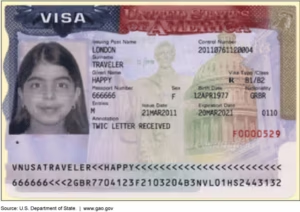Major Updates in U.S. Non-immigrant Visa Process
On September 6, 2025, the U.S. Department of State (DOS) announced it would no longer process “third country national” (TCN) applications for non-immigrant visas (NIV), ending a policy that had been in place for many years. Now, all NIV applicants must schedule their visa interviews in their country of nationality or residence, or at specific posts where routine visa services are not available locally.
What Is A Non-Immigrant Visa?
A non-immigrant visa allows a foreign national to enter the U.S. temporarily for a specific purpose, such as tourism, business, study, or temporary work, and requires the applicant to demonstrate they have a permanent residence outside the U.S. and will return to it.

What Changed?
Before this, applicants for certain U.S. nonimmigrant visas could apply in a third country. This practice was often employed to avoid long wait times in high-demand countries such as India or China. Known as third-country national processing, it provided flexibility for international travelers.
However, the new DOS policy:
- Requires visa interviews to take place in the applicant’s country of nationality or residence, with proof of residence.
- Restricts applications outside this framework, making it harder for travelers to apply in third countries.
- Only keeps exceptions for diplomatic, official, emergency, humanitarian, and specific visa categories, such as A, G, and NATO visas.
- Continues to honor previously scheduled appointments under the old system, but does not allow fee transfers or refunds.
Impact on U.S. Businesses
This policy shift may have broad implications for U.S. businesses that depend on international workforce mobility: Longer wait times and delays: Employees abroad will likely face longer waiting periods for visa appointments because of consulate capacity limits in their home countries.
- Project and travel disruptions: Business travel, international assignments, and onboarding of foreign talent may need more lead time and better planning.
- Operational adjustments: Companies may need to change project timelines, prepare for delays in workforce availability, and manage expectations regarding visa issuance delays.
- Businesses with global teams or international hiring plans should quickly assess how this policy affects them.
Working with the team at Gunn-Menefee will be vital to ensure that your business impact is reduced. Early scheduling of visa interviews and closely monitoring embassy updates can help reduce risks associated with potential processing delays.
Final Thoughts
This change reflects the U.S. government’s adjustment of its approach to visa processing amid rising global demand and operational challenges. The policy aims to improve security and regulatory integrity by ensuring consular officers handle applications in the applicant’s country of residence or nationality. However, it also creates new challenges for global business operations.
U.S. companies should respond quickly by incorporating these updated visa processing rules into their travel and human resource strategies to keep international operations running smoothly.